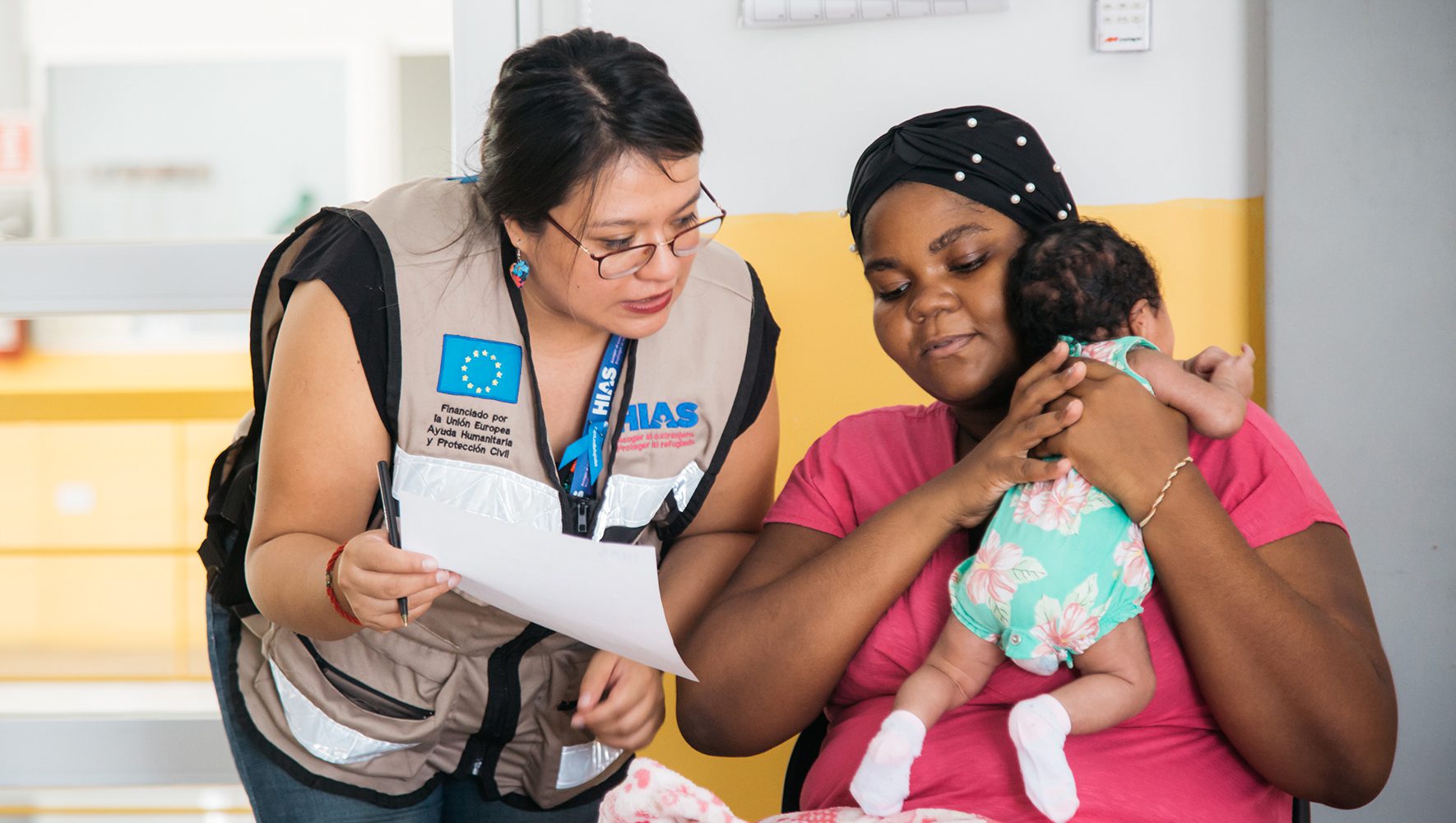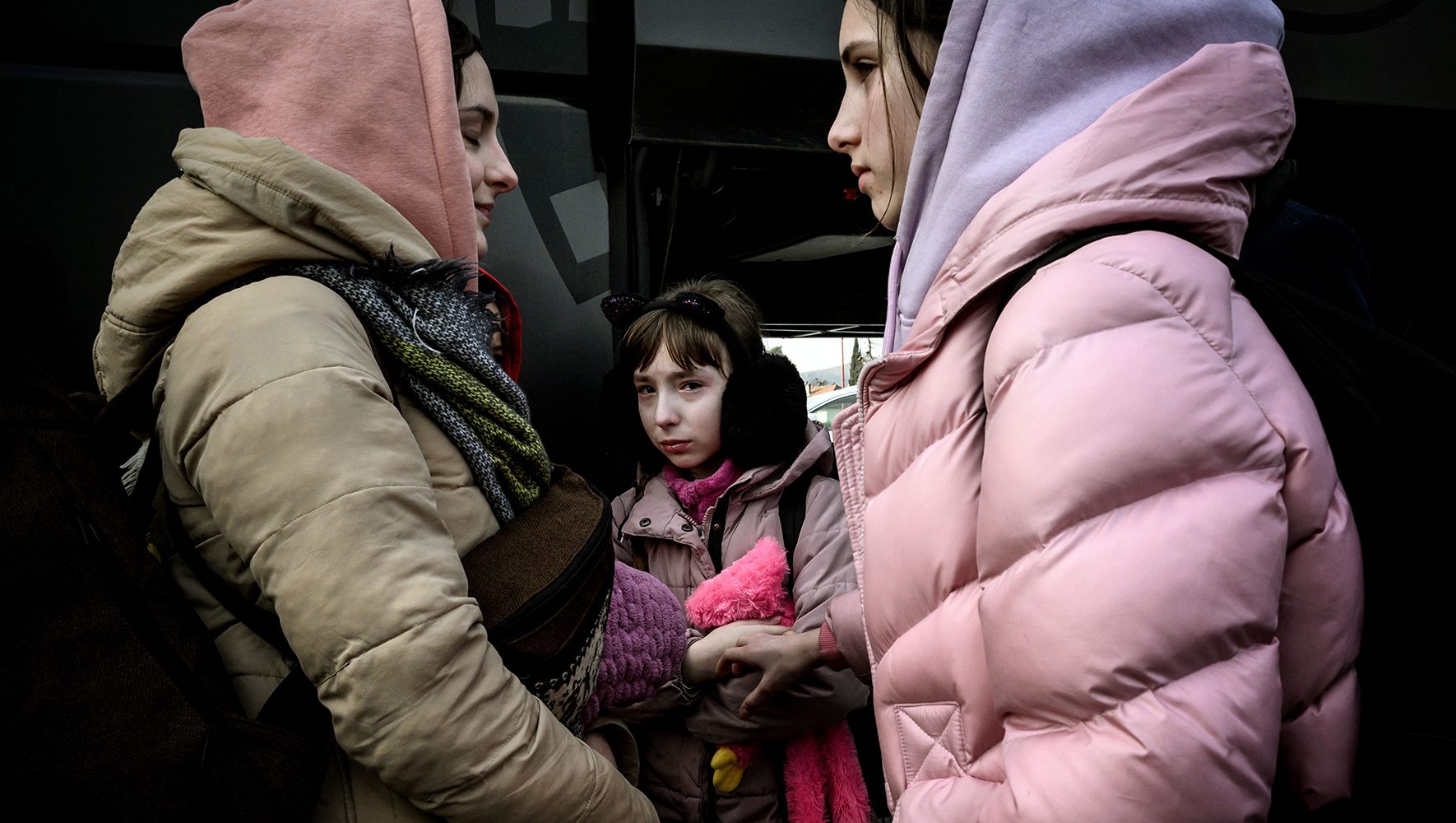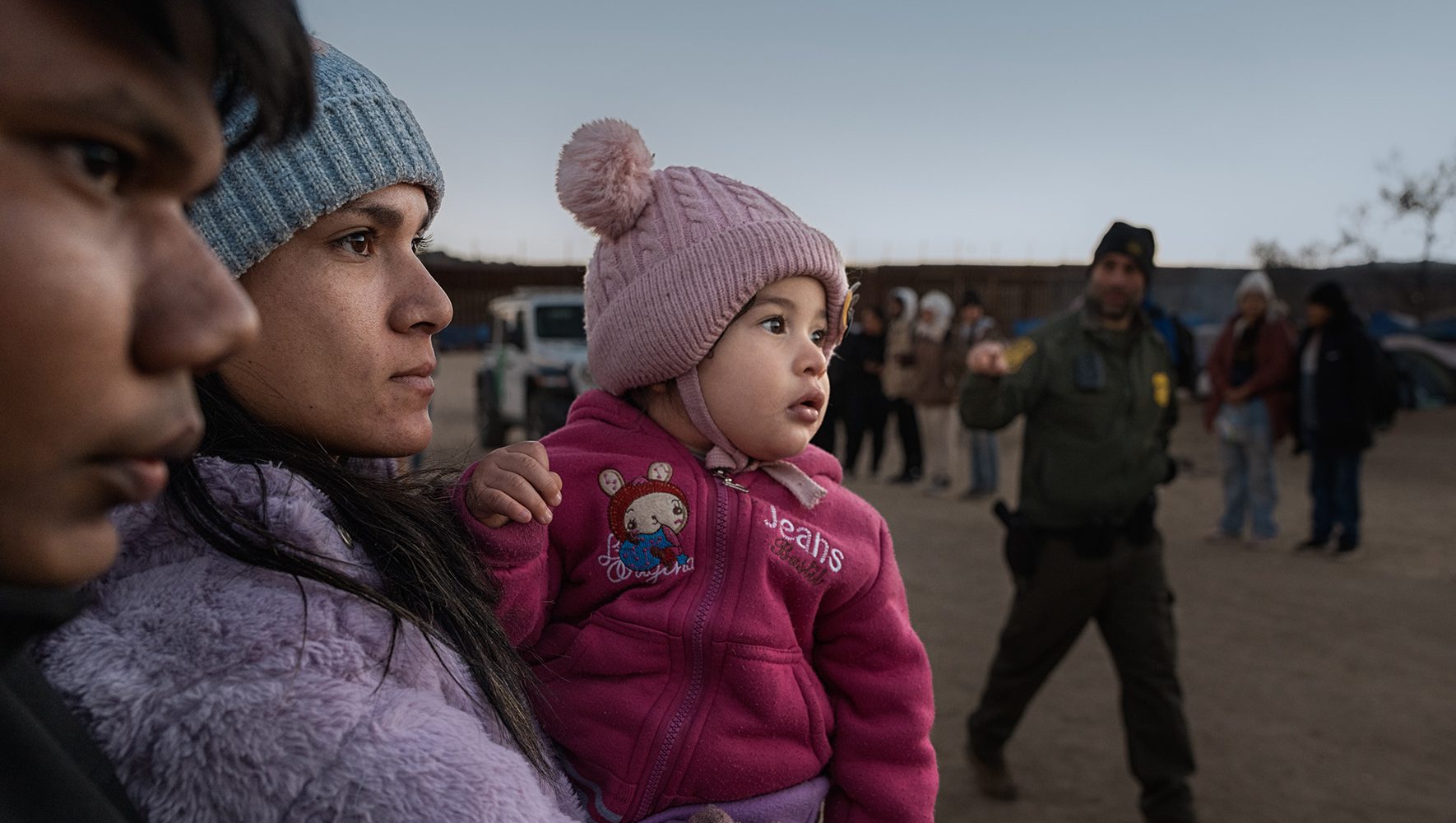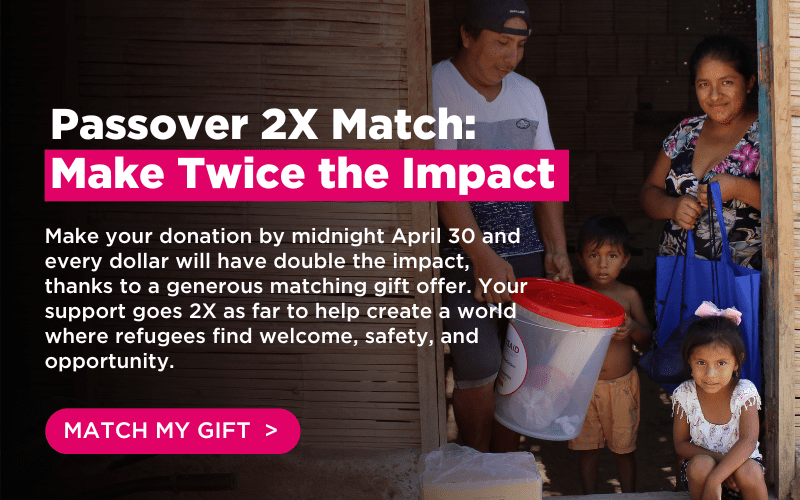Things to Know About Refugees and COVID-19
By Sharon Samber, HIAS.org
Apr 14, 2020
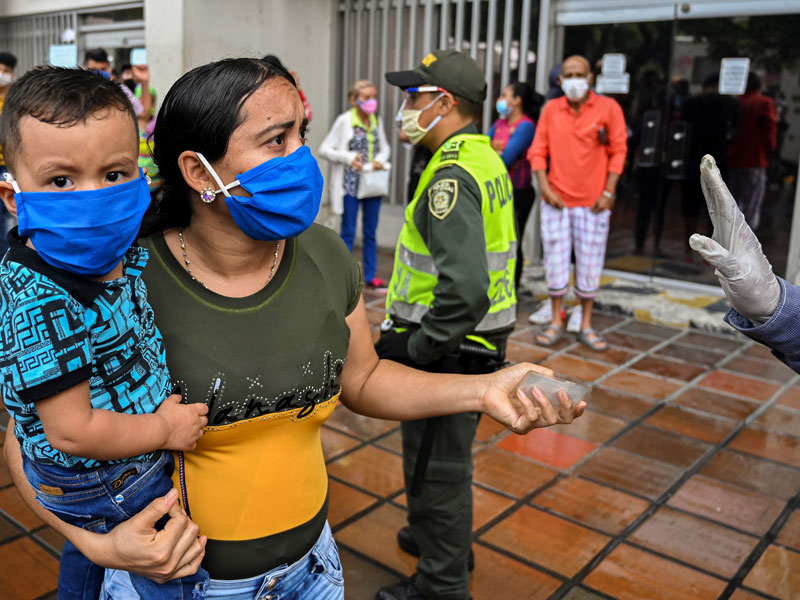
A Venezuelan woman and her son wear face masks as they wait to be checked by health workers to rule out the novel coronavirus as part of their repatriation process in Cali, Colombia on April 13, 2020.
(Luis Robayo/AFP via Getty Images)
Some important things to keep in mind about refugees and COVID-19:
#1: Despite the COVID-19 pandemic, refugees and asylum seekers have the right to seek safety from persecution and violence.
As COVID-19 spreads, some countries may seal their borders or block the right to seek asylum. But, as Filippo Grandi, the U.N. High Commissioner for Refugees, has pointed out, “wars and persecution have not stopped.” Grandi suggests that authorities should put in place screening, testing, and quarantine arrangements to safely manage arrivals of refugees and asylum seekers while respecting international refugee protection standards designed to save lives. Asylum remains a right under international law.
#2: Refugees must be included as countries protect their citizens and residents.
Refugee populations are often left out of the planning for disasters and epidemics. It can be difficult to provide refugees and asylum seekers with accurate and relevant information, especially in multiple languages. Refugees and asylum seekers can easily be forgotten in times of crises.
#3: Refugees’ health should not be a barrier to inclusion.
Health care services in refugee camps and processing centers give health screenings. Refugees undergo extensive health screenings before they are resettled in their new host countries; in the United States, the Center for Disease Control and Prevention closely monitors resettlement applicants and stops those with health conditions identified as hazardous to the public.
#4: Refugees are just as vulnerable to COVID-19 as the next person.
Most refugees live in cities, not refugee camps. But either way, refugees living in densely populated environments are vulnerable to the spread of COVID-19 through community contact with family, neighbors, coworkers, and others.
#5: Refugees must be included in COVID-19-related legislative packages and other responses.
As the U.S. Congress works on coronavirus-related stimulus and protection packages, vulnerable populations including refugees, immigrants, and Special Immigrant Visa (SIV) holders can fall through the cracks. Leaving some out leaves us all at greater risk, so it is critical that recently arrived refugees and SIVs are included, and their basic needs met to prevent economic ruin. The same holds true for legislative initiatives in other countries: COVID-19 response packages should specifically include provisions recognizing the rights of vulnerable refugees and asylum seekers to access basic protections, just as citizens do. In HIAS offices around the world, staff are working to ensure that refugees and asylum seekers are provided with essential services.
#6: You can help refugees, even while social distancing.
There are ways that you can advocate, volunteer, and otherwise support the immediate needs of refugees and asylum seekers, even while in your home. Check out our list here, which will be updated frequently.
Sources: World Health Organization, UNHCR, Refugee Council USA, Norwegian Refugee Council, Indiana State Department of Health


